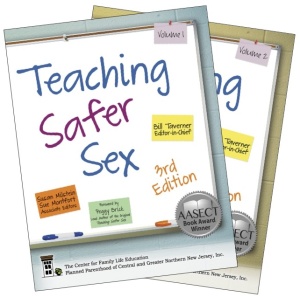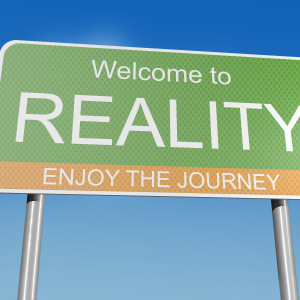 Sexuality education covers SO MANY different areas: law, biology, psychology, religion, history…I tend to say that if it’s something humans think about, it probably applies to sex too. As a subject matter to be taught and discussed, however, sexuality is often given a very short shift. Many of the schools I work in only give me an hour – two if I’m lucky! – to cover everything an 8th grader needs to know. I try to take a look at what’s included in the standard curriculum of the school environment, but what is lacking is often so dramatic that I have to make brutally hard choices. Three of the topics that tend to win out time and time again, even in this Russian roulette game of what the students actually need, are values clarification, decision-making, and communication.
Sexuality education covers SO MANY different areas: law, biology, psychology, religion, history…I tend to say that if it’s something humans think about, it probably applies to sex too. As a subject matter to be taught and discussed, however, sexuality is often given a very short shift. Many of the schools I work in only give me an hour – two if I’m lucky! – to cover everything an 8th grader needs to know. I try to take a look at what’s included in the standard curriculum of the school environment, but what is lacking is often so dramatic that I have to make brutally hard choices. Three of the topics that tend to win out time and time again, even in this Russian roulette game of what the students actually need, are values clarification, decision-making, and communication.
Today’s lesson from Teaching Safer Sex is all about values clarification, and as a bonus, it’s written by one of my favorite young sexuality educators!
I FEEL GOOD!
Sexual Pleasure … Definitions and Values
By Kirsten deFur, MPH
Objectives
By the end of this lesson, participants will be able to:
- Define the term pleasure.
- List at least two influences on the development of values about sexual pleasure.
- Identify one way that pleasure is related to sexual health.
Rationale
Sexual pleasure is an important component of sexuality, and can influence sexual development and decision-making. The definition of pleasure is highly individual and complex, and it is important to both explore and affirm individual perceptions of pleasure. Additionally, an individual’s values about pleasure are shaped by a variety of influences, such as media, family, religion, peers and school. By identifying these influences, participants will be better prepared to affirm their own values, and hopefully make informed decisions about engaging in sexual activity. This lesson will help participants explore the meaning and influence of pleasure by developing a Pleasure Mind Map and examining personal values in an Agree/Disagree game.
Sexual pleasure is a difficult topic for most people – even sexual partners rarely have explicit conversations about something that they are trying to experience in themselves and bring forth in their partner through their actions. The root of this hesitancy, I think, is the degree to which the topic (even the word!) is swept under the carpet and ignored in both formal and informal sexuality education. Too many sex ed curriculum, for a variety of political and other reasons, don’t even include the word pleasure. That sexual pleasure is the primary reason most couples have sex – not reproduction! – is the elephant in the sex ed classroom.
And I love it that this lesson points out the elephant and starts discussions about it. After defining sexual pleasure through a series of short activities and discussions, participants in this lesson are invited to share their reactions (from agree to disagree) to a number of values-based statements:
- Movies and television shows portray sexual pleasure as important.
- Sexual pleasure is mostly about experiencing orgasm.
- When sexual activity is safe, it is more pleasurable.
- Sexual pleasure is complicated.
Through this guided, introspective conversation participants are able to deeply consider sexual pleasure and make their internal, and potentially subconscious, believe structures around sexual pleasure overt.
Being aware of their own perspectives and having given voice to them in the past will enable participants to be more explicit about their own desires with sexual partners and potential partners in the future. This will lead to more honest, healthier, happier sexual connections.






